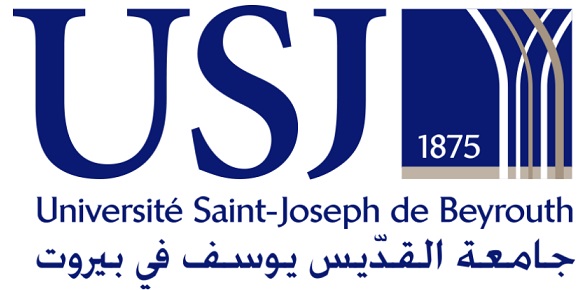Université Saint-Joseph de Beyrouth

Strengths
Due to the current geopolitical situation, no departure is possible toward this destination USJ is one of the largest multidisciplinary universities in Lebanon, and is committed to excellence in research through the activities of some 500 teachers, researchers and doctoral students, as well as some thirty structures dedicated to research. As a French-speaking institution, Université Saint-Joseph has a long history of student mobility, dating back to its foundation by the Jesuits in 1875.
Major, Academics
Courses in French. The final choice of courses can only be made on site, subject to approval by the relevant course leaders, depending on availability and overlapping timetables for the courses chosen, and subject to the number of places available for each course.
https://www.usj.edu.lb/formations/
Campus
You will be on the Social Sciences Campus.
https://www.usj.edu.lb/universite/institutions.php?getinst=7
Student life at USJ is not limited to studies: many students get together in student structures around themes that interest them (sport, culture, social or religious action) The Student Life Department oversees the organisation of annual activities (Democracy Day, Clubs’ Day, participation in the Beirut Marathon, Daraj al Yassouiyeh) aimed at bringing students and the university community together around different objectives. USJ has libraries on all its campuses and regional centres, including 5 special libraries. USJ is also about student sports. You can choose to practise one or more sporting disciplines and take part in intra-USJ competitions or local and international university tournaments (semi-Olympic swimming pool, omnisport parquet pitch, fitness room, two squash courts, three multi-purpose rooms for martial arts, fitness, table tennis, fencing, etc). https://www.usj.edu.lb/universite/campus.php
To discover
Despite its recent troubled past, Beirut has plenty to appeal to visitors. Nestling between the Mediterranean Sea and the mountains, Beirut is a dynamic cultural capital known for its lively nightlife. With its heterogeneous population, Beirut is a reflection of the country as a whole, which has long welcomed successive waves of immigrants from the Middle East. Since the civil war, the various religious groups have been divided into compartmentalised areas, and recent events continue to call for caution when visiting Lebanon. Place des Martyrs is the main square in the town and in the centre. Called Sahet al Shouhada in Arabic, its name commemorates the Arab nationalists killed by the Ottomans. At the centre of the square is an imposing statue that is one of the symbols of the city. The statue bears numerous bullet holes dating back to the Lebanese civil war. Also known as Rue Gemmayzé, Rue Gouraud is one of Beirut’s most emblematic streets. It is located in the Gemmayzé district, a trendy and lively part of the city. Rue Gouraud is renowned for its historic charm, bohemian atmosphere, restaurants, cafés and vibrant nightlife. The Greek Orthodox Cathedral of Saint George, located in Beirut’s historic quarter, the Mohammad Al-Amine Mosque and the National Museum are also well worth a visit. The pigeon grotto is surely the symbol of the Lebanese capital. And it’s also one of the most common clichés about Lebanon.
Good to know
In view of the economic and financial crisis in Lebanon, the devaluation of the national currency and the fluctuating rate of the US dollar against the Lebanese pound, a number of conditions and rules may be imposed on withdrawing money in foreign currency ($ or €). We advise you to bring a sum of cash in dollars or euros with you on arrival, which you can gradually exchange for Lebanese pounds in a bureau de change or with reliable people, according to your needs and the daily exchange rate imposed by the black market. Lebanon is a more or less expensive country than its neighbours, especially about accommodation. For a student, you need to budget around L150,000 (USD1,000) per month to cover accommodation, food and other expenses. However, the budget varies considerably depending on the region. Concerning the food, there are many small restaurants, snack bars and bistros in the area offering very affordable prices.
What's going on?
https://onlinenewspapers.com/lebanon.shtml
https://www.world-newspapers.com/countries/middle-east/lebanon
This information is provided as a guide. Please visit the partner university’s website to have exact updated information.
Eligibility
Score TOEFL 500
ICD PGE
Documents required
CV (in English) transcript, identity document, covering letter (in English) additional documents will be requested depending on the destination
Planning
AUTUMN
Orientation: few days before lectures start
Lectures start: early September
Fin des cours et examens: fin décembre
SPRING
Orientation: few days before lectures start
Lectures start: mid-January
End of lectures and exams: end of May
more information : https://www.usj.edu.lb/universite/calendrier.php
Procedures
Passport valid for six months after your return date.
We strongly recommend that you apply for a visa covering your entire stay (multiple entries) at the Lebanese consulate closest to your place of residence.
All international students on exchange at USJ must take out USJ group insurance (sudden illness, hospitalisation and repatriation), the conditions of which will be communicated to you in a separate document. You will not be able to register with your home faculty without providing proof of USJ insurance. https://www.usj.edu.lb/international/mobilite-info.php
Accommodation
You are responsible for finding your own accommodation. You have several options:
- Shared accommodation: this is the preferred option for international students. Offers are made from one person to another, by word of mouth, but above all on the Facebook group: Mobilité internationale USJ.
- The USJ Residence: USJ provides students with a “USJ Residence” located on rue de Damas next to the Rectorat (opposite the French Embassy). It contains single and double rooms and is divided into two wings: one for girls, the other for boys. Places are very limited, so book in advance by sending an e-mail to: etudiants@usj.edu.lb
- Halls of residence: there is a list of residences and halls of residence close to the campus, which you can consult at this link or by searching online.


